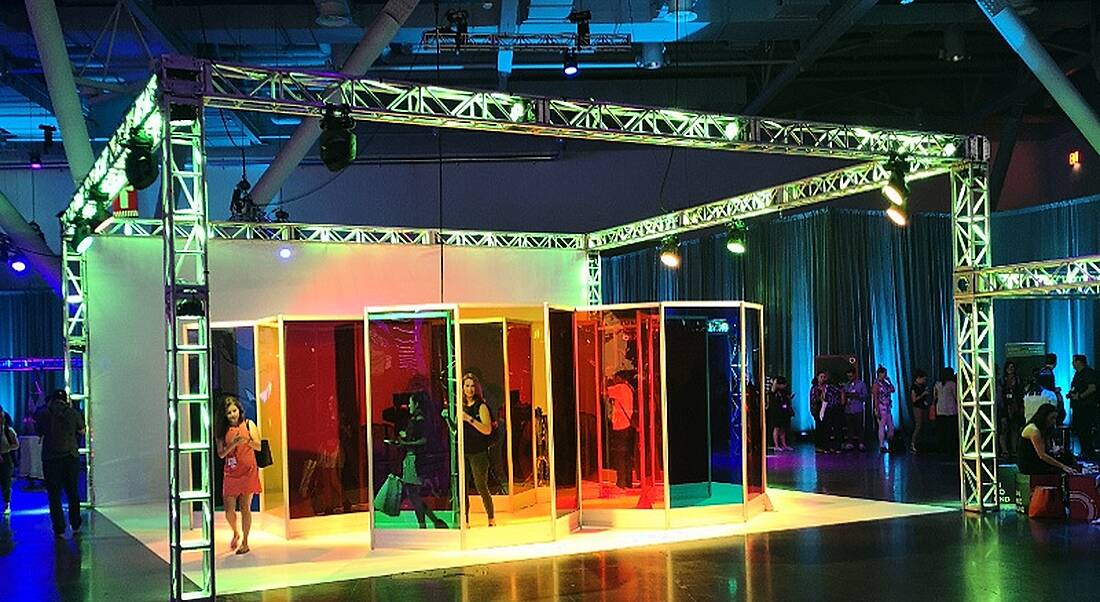In the future of work, it isn’t machines we need to fear – we need to fear becoming machines. Instead, we need to make ‘change’ our job, writes John Kennedy.
In divining or determining the future of work, much of the emphasis tends to be around things such as artificial intelligence (AI) and robots stealing our jobs. How relevant is your degree or skillset? Is the gig economy the future? How much will we earn?
But has anyone considered a bigger question about the future of work: that it might be more about being happy and healthy through being engaged and fulfilled by what you do?
‘More people die on Monday mornings at 9 o’clock of heart attacks because they hate their jobs’
– DEEPAK CHOPRA
To get away from the noise and to predict how the future of work might look, I decided to pay attention to the kind of thoughts and sentiments evident at digital marketing platform HubSpot’s annual shindig in Boston, Inbound, where the future of business is at the heart of the matter.
With my antenna tuned to the future of work, it was clear to me that the future won’t solely be defined by technology but how people will determine their own self-worth, how they are appreciated and respected, and how much they feel part of a team.
The upshot is that companies with happy, engaged workers sell more and achieve more.
An emotional connection
Author Deepak Chopra at Inbound 2018. Image: John Kennedy
“We know that successful businesses are those where people are fully engaged and passionate about the business,” Deepak Chopra, the bestselling author and founder of the Chopra Foundation, told Inbound.
Chopra said there is a clear connection between a person’s health and how they feel at work. “Only 20pc of people in American workplace are fully engaged. 80pc are actively disengaged; unhappy, but motivated with the purpose of making others unhappy. This costs the American economy $300bn a year in lost revenue.
“More people die on Monday mornings at 9 o’clock of heart attacks because they hate their jobs – an accomplishment that only human beings can take credit for. No other animal on earth knows the difference between Monday and Tuesday.
“Career wellbeing is when people are expressing their unique talents as part of a team, where everyone complements strengths and there is a shared vision and shared connection between those engaged in the workforce.
“It is about creating that emotional connection. A good sports team has those elements; good teams in workplace have those elements.”
Chopra said that criticism is healthier than people realise. “If your boss or supervisor criticises, you will get disengaged. But if you are ignored, you will be even further disengaged. If a manager or boss ignores you, disengagement goes up 40pc, but if he or she doesn’t ignore but criticises, engagement actually improves.
“When criticised, engagement by comparison falls 20pc. So, human beings would rather be criticised than ignored. When criticised, you exist, your presence acknowledged; if a manager notices a single strength you have, disengagement falls 20pc and health improves.”
And happy, engaged workers lead to more sales. “When you have happy, content and engaged people working for you, customers are happy; and if customers are happy, investors are happy and if they are happy, the business will be successful,” Chopra said.
“Social and emotional engagement are very important. If you have a happy friend even in the workplace, happiness goes up 15pc. Ultimately, even the happiness of your perceived competitors and enemies is important for happiness.”
Medically, unfulfilled workers are literally risking their lives. “It is also known that when you are happy, you are more immune to chronic diseases. Inflammation, in almost every chronic illness, is caused by existential anxiety. Depression puts you at risk for heart disease. The other end is lightness of being; a joyful, engaged body, lightness of body, and clarity of thought.”
Beware of the imagination gap
Former GE vice-chair Beth Comstock on stage at Inbound 2018. Image: John Kennedy
Beth Comstock, GE’s first chief marketing officer and its first female employee to hold the position of vice-chair, spearheaded digital and clean energy transformations at the industrial giant.
‘The machine mind has created an imagination gap in our companies. As a result, we are losing our ability to think ahead and imagine new futures, good and bad, and the courage to find ways in and out of those eventualities’
– BETH COMSTOCK
Like Chopra, Comstock told Inbound that she believes fulfilment and self-actualisation are core to the future of work. But, crucially, she ensured that change was a part of her job as she drove GE’s digital initiatives. “I am a change-maker, head-first into what’s new and what’s next.”
A self-confessed introvert, Comstock had to overcome fear and shyness to embrace the future and drive her career forward. Ultimately, this meant making mistakes and learning from them, but also allowing others to make mistakes and own their failures.
“Along the way, I had to give myself permission, summon courage, creativity, and chart a better course for myself to a new future – or risk being left behind.”
She mentioned the Bob Dylan classic song from 1964, The Times They Are A-Changin’.
“Things are now moving 100 times faster than when Dylan wrote those lyrics. There is a new dimension in change … Acts develop into patterns and multiply complexity; indiscernible shifts turn into sudden change. Things that were impossible are now inevitable. But the real problem is, we are not ready to handle emergent change. For decades and generations, we insisted that our businesses, and we the people, operate like efficient, fine-tuned machines, long before the advent of robotics or AI.”
So, Comstock asked, are we humans or machines? “We allowed the systems to squeeze creativity out of us, the will to discover, connect, fail. The machine mind has created an imagination gap in our companies. As a result, we are losing our ability to think ahead and imagine new futures, good and bad, and the courage to find ways in and out of those eventualities.
“65pc of us don’t feel creatively fulfilled at work. How do we overcome this imagination gap? The same way I willed myself out of an acute case of introversion: it starts with giving yourself permission. Change happens when you give yourself permission to imagine a better future, and then you make it happen.
“Gatekeepers [in the workplace] feel threatened by action; their true motivation is to hold on to what little power they have. When I hear the word ‘no’, it is really the enemy of progress; a magic curse that puts a hex on change. I’ve worked with so many amazing change-makers. When I hear ‘no’, I hear an invitation to go forward. ‘No’ means not yet. At GE, ‘no’ meant three times I would try; three times really is the charm.
“You have to learn to be relentless, you have to do that. What is a risk you will give yourself permission to take? What ‘no’, what constraint, what fear are you going to tackle? Most importantly, who will give you permission to do so?”
Another device for coping with change in the future of work is to make the world your classroom. “We would go to makerspaces in Brooklyn, military barracks in Israel, to even judging a boy band competition in South Korea. Chart where your discovery will take you.
“Once you get out in the world, you start to see connections; connections make way for patterns. Change is part of your job. You have to dedicate time for discovery – 70pc on now, 20pc on what’s next, 10pc on what’s new.”
As well as data, trust the intuition of workers
Globoforce is an Irish-born tech company that, as well as Dublin, has considerable offices in Framingham just outside Boston. It is a pioneer of the WorkHuman movement, which aims to help millions of workers in thousands of companies worldwide enjoy a positive emotional connection with their work.
‘People want to be proud of the company they work for, and that in turn informs the overall success of a company or brand’
– KEVIN MULLINS
At Inbound, I caught up with Kevin Mullins, vice-president of global communications at Globoforce.
At the heart of what Globoforce provides is a recognition platform for companies to reward employees. “We actively visualise the connection points of people through recognition in the workplace, and what we have learned through our own data and analytics is that people are motivated by doing meaningful work; the sense that they like doing something valuable that has a positive impact,” Mullins said.
“This is becoming an important part of people’s expectations. It does not necessarily mean they are doing the work of an NGO per se, but they want to know that what they do matters, and understand how they are contributing to something important. People will want to feel they believe in a company’s mission and that the company aligns with their values. They want to be proud of the company they work for, and that in turn informs the overall success of a company or brand.
“Every employee is a brand ambassador; they are who you are. Culture isn’t just a list of values, they have to be lived and it really boils down to the way people behave and treat each other in the workplace. This helps to reinforce the right behaviours. If a company takes pride in work-life values, it could mean all the difference between saying the right thing and doing the right thing. And customers see that.”
Informed, yet informal, leadership
At Inbound, I also caught up with Christian Kinnear, EMEA managing director for HubSpot, which employs more than 500 people in Dublin.
Kinnear said that the future of work can certainly be about analytics and chatbots, but it really boils down to empowered workers and a different, more inclusive, insightful leadership style.
‘The old way – with one leader that has all the answers, imposing their views on others and expecting workers to take that answer and run with it – is illogical and doesn’t make sense’
– CHRISTIAN KINNEAR
“The real value will be delivered by the frontline folk who interact with customers. The real experts on what it is like to be a customer of your business will be the customer. Your frontline people who talk to customers will have the most insights. Engage them in conversations about what can be done better.
“A leader’s role is to create an environment to help your business flourish, not just deliver numbers. This means fostering buy-in and engagement by employees – this will be a minimum requirement of a 21st-century leader.
“The old way – with one leader that has all the answers, imposing their views on others and expecting workers to take that answer and run with it – is illogical and doesn’t make sense.”
You could say that the future of work will be about machines, AI, bots, all that jazz. But it is clear to me that the future of work will be about workers who feel valued and fully buy into an organisation’s vision and purpose.
The future of work is about workers who feel, in their hearts, that they are the change-makers and have the freedom and latitude to drive the future themselves.




